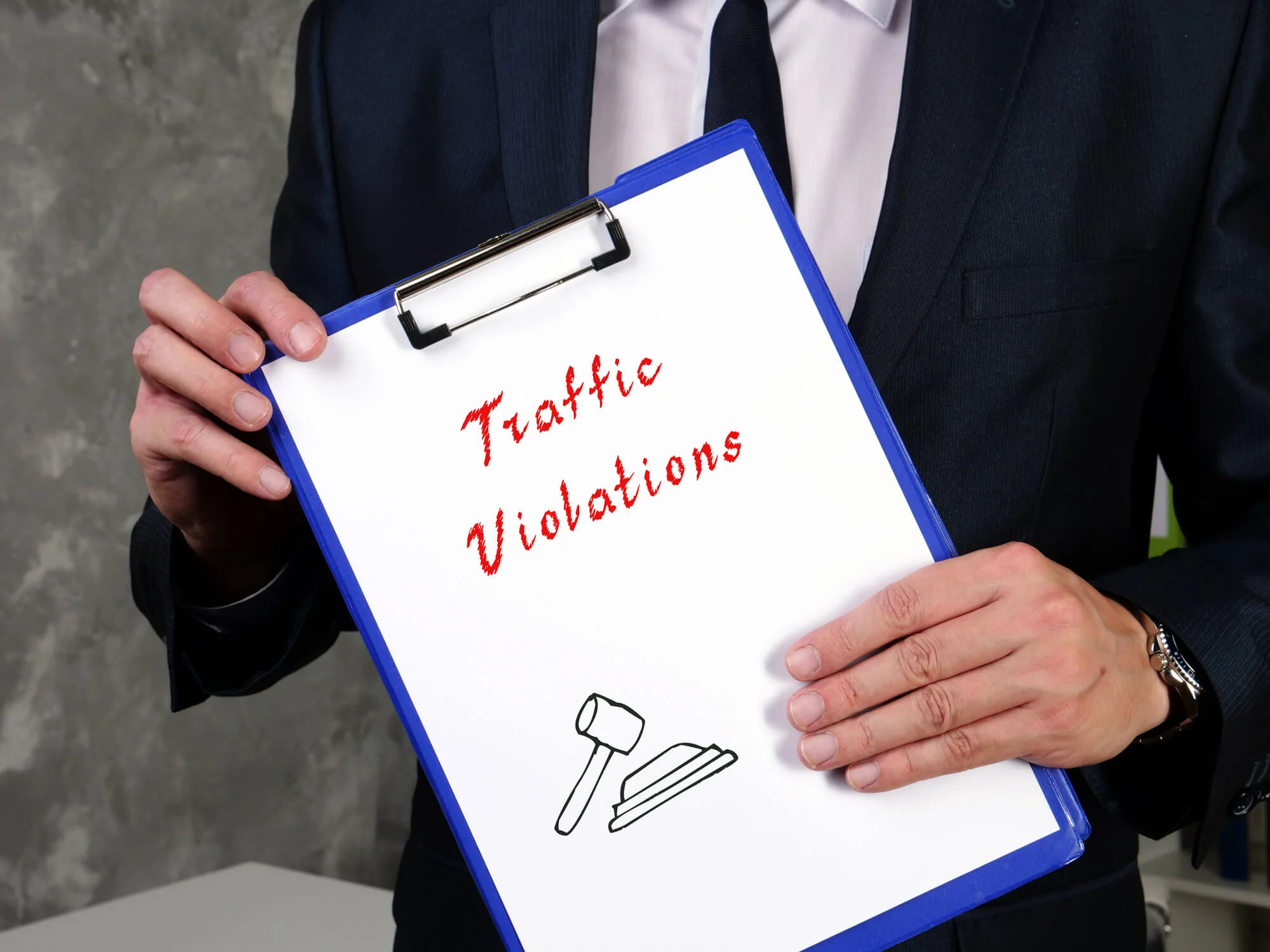When a person experiences an injury due to an accident at work or someone else’s negligence, it can be challenging to understand the available legal options. In North Carolina, injured individuals generally pursue compensation through two primary systems: workers’ compensation and personal injury claims. While both offer remedies for injuries, medical expenses, and income loss, the differences are critical to understand. Each system involves different regulations, levels of protection for the injured, and legal action paths. The circumstances of the accident often determine which route is most appropriate. Claimants must evaluate whether their situation involves employer responsibility, third-party liability, or unsafe conditions. A structured benefit process is followed in workers’ compensation cases, while personal injury cases may lead to a negotiated settlement or trial verdict.
At Constantinou & Burkert Accident Injury Lawyers, we have the experience and knowledge to guide clients through workers’ compensation and personal injury claim processes. This post will explore how these systems work, the types of workers’ compensation benefits available, and what steps you can take to protect your legal rights following an accident. We’ll also provide key information about what evidence is needed to support your claim and how the amount of compensation is determined based on the facts of your case.
Understanding the Workers’ Compensation System in North Carolina
North Carolina’s workers’ compensation system exists to help employees who suffer injuries or illnesses while performing duties related to their job. This no-fault system ensures that workers receive prompt medical treatment, wage replacement, and rehabilitation when they experience workplace injuries, even if the employer was not at fault. It’s designed to minimize losses for the worker and their family by offering a structured way to obtain essential care. In tragic cases involving death, surviving family members may also be eligible for benefits. The outcome of a claim can vary depending on the injury’s severity, the accident’s circumstances, and the strength of the medical and legal documentation. The award granted can help ease financial burdens and support recovery. At our office, we regularly receive positive reviews from clients who appreciate how we handle each case with the care and respect it deserves, no matter the name or background of the client.
Key Aspects of Workers’ Compensation
No need to prove negligence by your employer.
Provides compensation benefits such as coverage for medical bills, lost wages, and long-term disability.
Covers all employees except those explicitly exempted by law.
Limits your ability to sue your employer in court.
Claims are handled through the North Carolina Industrial Commission.
For example, if a worker in Durham is injured while using faulty machinery at a factory, that injury would typically fall under workers’ compensation insurance. The worker would file a compensation or comp claim to receive medical care, lost income, and possible disability benefits. These situations raise many important questions for injured people, such as whether the machinery was correctly maintained, who is liable, and what type of workers’ compensation coverage applies. Compensation claims can become complex depending on the details, but with the proper legal guidance, injured workers can protect their rights and get the benefits they deserve.
When Personal Injury Claims Apply
While workers’ compensation covers many on-the-job injuries, there are situations where a personal injury claim may be more appropriate or may apply in addition to a workers’ comp case. One crucial fact to consider is that comp benefits have limitations, such as restricted compensation for pain and suffering or partial wage replacement. A personal injury claim, on the other hand, allows for broader compensation depending on the injured person’s condition and the factors that caused the incident. Another critical thing to understand is that negligence plays a key role in these cases; if someone else failed in their duty of care, they could be held liable. Personal injury claims can be beneficial in areas where third-party involvement is part of the incident, such as a defective product or unsafe premises. Staying informed through legal updates and advice from a qualified attorney helps ensure you choose the right legal path.
These claims often arise from:
Car accidents caused by another driver
Unsafe property or slip and fall incidents
Dangerous products or equipment
Construction accidents involving third-party companies
In a personal injury lawsuit, you must prove that another party was at fault and that their actions, often involving recklessness or negligence, directly led to your injury. You can seek compensation for pain and suffering, medical expenses, loss of enjoyment of life, and more. The legal expectations for proving fault can vary depending on the area of law and the details of each case. Every individual deserves focused attention from an experienced attorney who understands how to navigate these claims effectively. At Constantinou & Burkert, we represent clients across North Carolina with integrity and dedication. Be sure to explore our site and blog for helpful resources and guidance. Our logo is proudly displayed as a mark of trust and professionalism in the legal community.
Benefits of Personal Injury Claims
Broader range of damages, including emotional distress, mental anguish, and loss of future wages.
No cap on non-economic damages like pain, suffering, or depression.
Holding product manufacturers, property owners, or drivers legally responsible.
For instance, if someone working as a delivery driver is hit by a reckless driver while on duty, they might pursue a workers’ compensation claim for immediate medical treatment and a personal injury claim against the at-fault driver for long-term pain and suffering. In such cases, workers’ compensation attorneys can help coordinate both claims to ensure the injured person receives the complete remedy they deserve. It’s important to understand that while one system may cover certain expenses, the others may offer additional relief, such as compensation for emotional distress or future medical care. Establishing a strong attorney-client relationship is essential in these complex cases, as it allows your legal team to build the best strategy for recovery and protection of your rights.
Differences Between Workers’ Comp and Personal Injury
Understanding the differences between workers’ compensation and personal injury claims is essential to making the correct legal decision. While both deal with injuries and compensation, they are distinct in their processes, legal requirements, and outcomes.
One of the primary differences lies in fault. Workers’ compensation operates under a no-fault system, meaning an injured employee does not need to prove that anyone was responsible for the accident to receive benefits. In contrast, personal injury claims require the injured party to establish that another party’s negligence or intentional act caused their injury. This fault-based system means more legal work is necessary, but it can also result in higher compensation.
Another key difference is the type of damages covered. Workers’ comp typically provides medical care, partial wage replacement, and disability benefits. However, it does not cover pain and suffering. Personal injury claims may offer broader compensation, including full lost wages, emotional distress, and punitive damages.
Suing your employer is generally not allowed under workers’ comp laws, while personal injury claims can sometimes include lawsuits against employers or third parties. Workers’ comp claims are handled administratively through a state system, whereas personal injury lawsuits are filed in civil court. While workers’ compensation offers guaranteed benefits, personal injury claims may yield more substantial awards if proven.
When Can You File Both?
Sometimes, you may be eligible to pursue workers’ compensation and personal injury claims. These scenarios often involve a third party who contributed to your injury.
Example Scenarios:
1. Car Accident While Working: You’re a contractor involved in a car crash during work hours. You may qualify for workers’ comp from your employer and a personal injury lawsuit against the driver who caused the crash.
2. Defective Product at Work: If faulty equipment causes your workplace injury, you may be able to file a workers’ comp claim and sue the product manufacturer.
Pursuing both can be complex, and legal advice from an experienced personal injury lawyer or workers’ compensation attorney is essential. At Constantinou & Burkert, we offer strategic guidance on approaching these dual claims to maximize recovery and protect legal rights.
How Constantinou & Burkert Help
At Constantinou & Burkert Accident Injury Lawyers, we understand that every injury and case is different. Our law firm provides personalized legal support for individuals injured in North Carolina, including Durham, Concord, and Mecklenburg County.
Why Choose Us?
Decades of combined experience in personal injury and workers’ compensation litigation
Aggressive pursuit of fair settlements and compensation benefits
Compassionate, client-focused representation
Free consultation to assess your situation and legal options
Our team helps clients understand their rights, navigate the legal process, and achieve real results. From filing paperwork to negotiating with insurance companies, we manage all legal actions on your behalf so you can focus on healing.
Your Legal Options After an Injury

The legal professionals at Constantinou & Burkert Accident Injury Lawyers in Durham North Carolina are shown helping clients pursue appropriate compensation for workplace injuries or negligence by others
Whether you were hurt by a falling object at work or hit by a driver while running an errand for your employer, you must consider all your legal remedies. In North Carolina, time limits—known as statutes of limitations—restrict how long you must file either type of claim.
Here’s What to Do:
1. Report the incident to your employer immediately.
2. Seek medical treatment and follow all care instructions.
3. Document everything: photos, witness names, injury details.
4. Contact a lawyer: Get the proper legal guidance if you need a personal injury attorney or a workers’ compensation lawyer.
5. Review your options for a lawsuit, a comp claim, or both.
6. Avoid signing anything from the insurance company without legal review.
Your injury may qualify for workers’ compensation, a personal injury claim, or both. Don’t rely on employers, insurance providers, or online FAQs to understand the full scope of your legal rights—talk to a lawyer who has your best interests in mind.
Final Thoughts: Get the Legal Help You Deserve
Whether dealing with a compensation claim for a workplace injury or considering a personal injury lawsuit, don’t leave your case to chance. The results you get often depend on the law firm you choose. At Constantinou & Burkert, everyone deserves fair treatment, quality legal representation, and peace of mind.
We assist individuals, employees, and workers from North Carolina with filing their claims, understanding the difference between workers’ comp and personal injury, and getting the compensation they deserve.
Let our attorneys guide you. Call us today or submit a message via our contact form. One phone call can change your outcome—and your life.
Frequently Asked Questions
1. Can I choose my doctor for treatment under workers’ compensation in North Carolina?
In North Carolina, your employer or insurance company typically chooses the doctor for workers’ compensation treatment. However, you may request a change by petitioning the North Carolina Industrial Commission.
2. What happens if my employer doesn’t have workers’ compensation insurance?
If your employer is legally required to carry coverage but doesn’t, you may still be eligible for benefits through the North Carolina Uninsured Employers Fund. You can also sue your employer in civil court for negligence.
3. How long do I report workplace injuries to qualify for workers’ compensation?
You must report your injury to your employer within 30 days of the incident, although sooner is always better to avoid complications with your claim.
4. Can I receive workers’ compensation benefits if the accident was partly my fault?
Yes. North Carolina’s workers’ compensation system is “no-fault,“ meaning you can still qualify for benefits even if you were partially responsible for the injury.
5. What if my personal injury settlement overlaps workers’ comp benefits?
If you receive both, the law may require you to reimburse workers’ compensation for specific amounts already paid—this is known as subrogation and should be reviewed with your attorney.
6. Are mental health issues covered by workers’ compensation?
In some cases, yes. If the psychological injury, such as PTSD or depression, results from a workplace injury or traumatic event, it may be compensable under North Carolina workers’ comp laws.
7. What types of damages are not covered by workers’ compensation?
Workers’ compensation does not cover non-economic damages like pain and suffering, emotional distress, or loss of enjoyment of life—these are typically addressed in personal injury claims.
8. Will filing a personal injury claim impact my job or employment status?
Filing a claim against a third party typically does not affect your employment, but suing your employer (outside of workers’ comp) could have workplace consequences. Speak with a lawyer before pursuing any legal action.
9. Can I settle a workers’ compensation case in North Carolina?
Yes. Many workers’ compensation claims result in a Form 26A or Form 21 agreement, or complete and final settlements via clincher agreements. Legal advice is essential before signing anything.
10. What should I bring to my consultation with a workers’ compensation or personal injury attorney?
Bring any medical records, accident reports, witness contact information, employer communications, and photos of the injury or accident scene to help your attorney evaluate your case thoroughly.



